Matthew Corsetti
Nonnegative Matrix Factorization with Zellner Penalty
Dec 07, 2020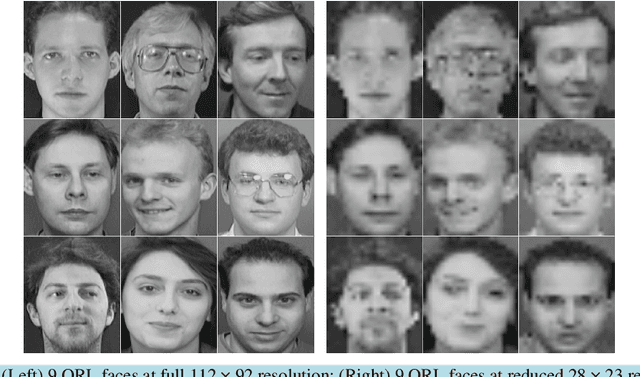
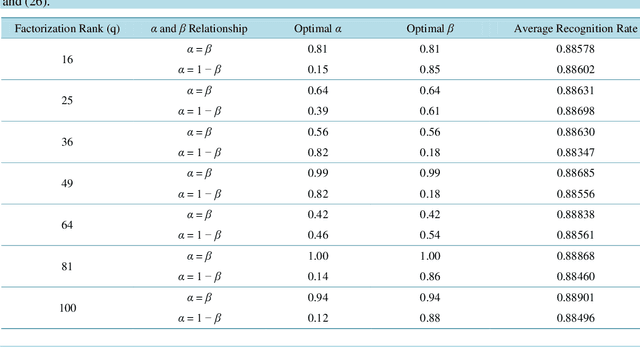
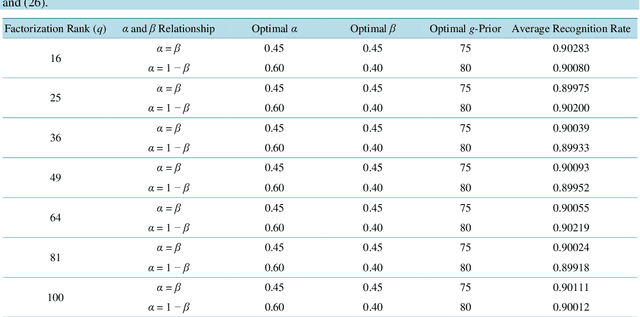
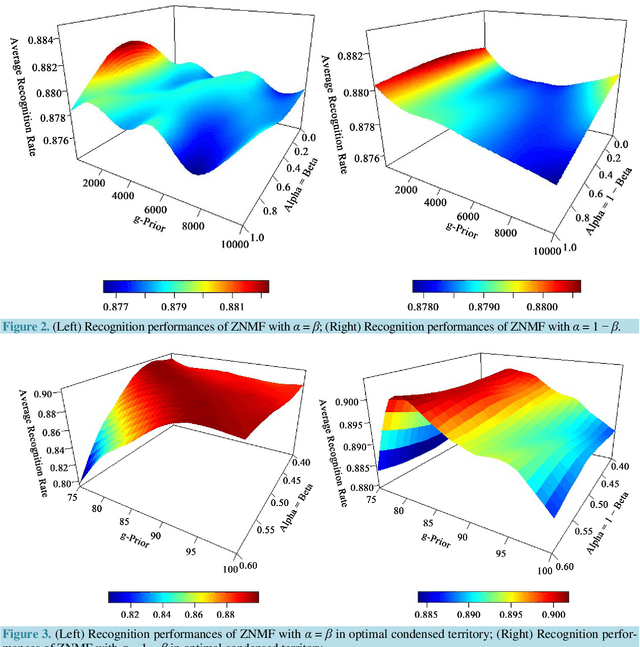
Abstract:Nonnegative matrix factorization (NMF) is a relatively new unsupervised learning algorithm that decomposes a nonnegative data matrix into a parts-based, lower dimensional, linear representation of the data. NMF has applications in image processing, text mining, recommendation systems and a variety of other fields. Since its inception, the NMF algorithm has been modified and explored by numerous authors. One such modification involves the addition of auxiliary constraints to the objective function of the factorization. The purpose of these auxiliary constraints is to impose task-specific penalties or restrictions on the objective function. Though many auxiliary constraints have been studied, none have made use of data-dependent penalties. In this paper, we propose Zellner nonnegative matrix factorization (ZNMF), which uses data-dependent auxiliary constraints. We assess the facial recognition performance of the ZNMF algorithm and several other well-known constrained NMF algorithms using the Cambridge ORL database.
* 10 pages, 4 figures, 2 tables
Nonnegative Matrix Factorization with Toeplitz Penalty
Dec 07, 2020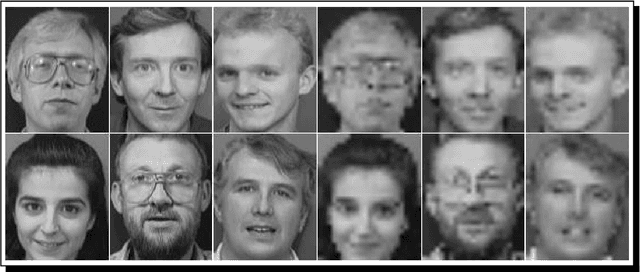
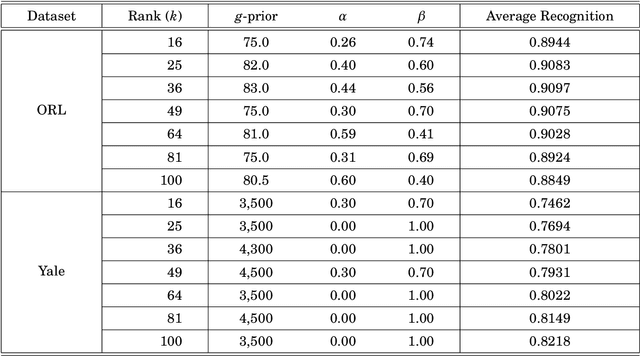
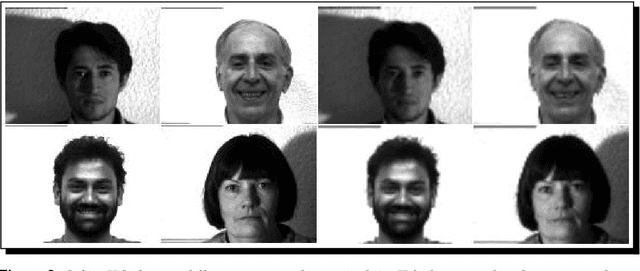
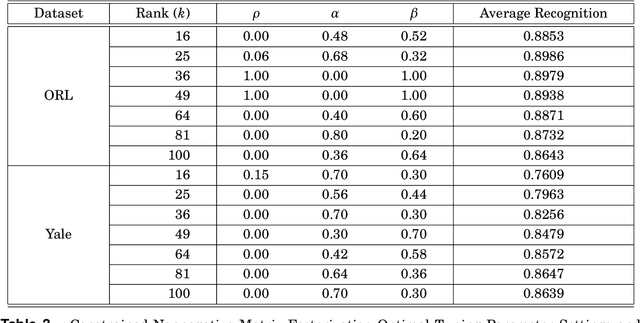
Abstract:Nonnegative Matrix Factorization (NMF) is an unsupervised learning algorithm that produces a linear, parts-based approximation of a data matrix. NMF constructs a nonnegative low rank basis matrix and a nonnegative low rank matrix of weights which, when multiplied together, approximate the data matrix of interest using some cost function. The NMF algorithm can be modified to include auxiliary constraints which impose task-specific penalties or restrictions on the cost function of the matrix factorization. In this paper we propose a new NMF algorithm that makes use of non-data dependent auxiliary constraints which incorporate a Toeplitz matrix into the multiplicative updating of the basis and weight matrices. We compare the facial recognition performance of our new Toeplitz Nonnegative Matrix Factorization (TNMF) algorithm to the performance of the Zellner Nonnegative Matrix Factorization (ZNMF) algorithm which makes use of data-dependent auxiliary constraints. We also compare the facial recognition performance of the two aforementioned algorithms with the performance of several preexisting constrained NMF algorithms that have non-data-dependent penalties. The facial recognition performances are evaluated using the Cambridge ORL Database of Faces and the Yale Database of Faces.
* 15 pages, 6 figures, 3 tables
 Add to Chrome
Add to Chrome Add to Firefox
Add to Firefox Add to Edge
Add to Edge